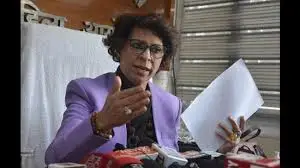Complainant against Ashoka Univ Professor has been there, done that

Ashoka University, one of India’s leading liberal arts institutions, faces renewed controversy as fresh complaints emerge against a professor. Students had raised concerns about this professor’s conduct before. Many now say the university did not respond adequately to earlier grievances. This situation exposes weaknesses in how the institution handles sensitive allegations.
Background: A History of Concerns
Students and faculty previously reported issues with this professor. However, many felt the university delayed investigations or did not take their complaints seriously. This led to frustration and mistrust. Ashoka University promotes academic freedom and openness, but this case reveals gaps in its grievance processes. Transparency and fairness remain critical in such situations.
Student Voices Demand Justice
Students openly share their experiences. Many describe how difficult it is to speak up against a professor. They fear backlash or being ignored. The repeated complaints against the same person deepen concerns about protecting students. Social media and forums have become places where students tell their stories and demand reform. They want complaints handled seriously and investigations conducted fairly and quickly.
Administrative Response Lacks Clarity
Ashoka University’s administration says it is investigating the matter. Yet, it has shared few details publicly. Student groups and faculty critics call for more transparency. They say open communication can rebuild trust. Universities must balance privacy and public interest. Getting this balance right prevents rumors and protects everyone’s rights.
Broader Issues in Higher Education
Ashoka’s problem is not unique. Universities across India and the world face similar challenges. Cases of misconduct, harassment, and weak complaint systems arise often. Experts say universities should have clear conduct policies, faculty training, and independent complaint bodies. They also urge schools to educate students about their rights. This empowers students to report problems without fear.
Moving Toward Accountability and Support
The situation highlights the need for systemic change. Universities must create transparent, fair grievance systems that protect confidentiality and hold wrongdoers accountable. Building a respectful, inclusive campus culture also matters. Preventing misconduct requires education, dialogue, and strong support networks.
Conclusion: A Chance to Improve
The renewed complaints at Ashoka University remind us that no institution is perfect. What matters is how they respond. Ashoka has a chance to show its commitment to ethics and academic excellence. Transparent investigations, clear updates, and reforms can restore faith in the university. Other institutions can learn from its example.
In the end, student safety and empowerment must come first. Honest, determined action will create not just centers of learning but safe, welcoming academic homes.






